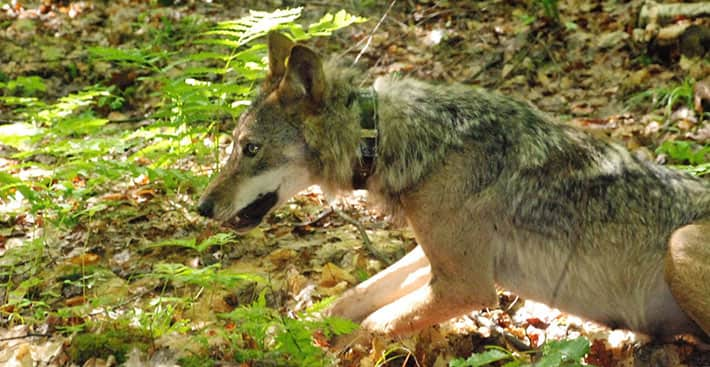Tribes in Michigan and Wisconsin Receive Grants from U.S. Fish and Wildlife Service for Conservation Work
OutdoorHub 06.13.14

The U.S. Fish and Wildlife Service recently announced $4.6 million in Tribal Wildlife Grants awards to federally recognized tribes in 15 states to fund a wide range of fish and wildlife conservation projects. Two tribes in the Midwest Region, the Nottawaseppi Huron Band of the Potawatomi (Michigan) and the Stockbridge-Munsee Community (Wisconsin) received a total of more than $399,000 in grants for conservation projects.
“Tribal nations share our conservation challenges in the United States,” said Service Director Dan Ashe. “The Tribal Wildlife Grants Program creates opportunities for tribes to build conservation capacity and for us to work together in a variety of ways, including species restoration, fish passage, protection of migratory birds and efforts to cope with the long-term effects of a changing climate.”
The grants provide tribes opportunities to develop increased management capacity, improve and enhance relationships with partners (including state agencies), address cultural and environmental priorities and heighten tribal students’ interest in fisheries, wildlife and related fields of study. A number of grants have been awarded to support recovery efforts for threatened and endangered species in the Midwest Region.
2014 TWG Awards in the Midwest Region:
MICHIGAN:
Nottawaseppi Huron Band of the Potawatomi ($199,942) – Wildlife Habitat Assessment and Restoration Plan: Expansion and Implementation
The Nottawaseppi Huron Band of the Potawatomi has received TWG awards in the past which were used to develop and implement the first two years of a 10-year Wildlife Habitat Assessment and Restoration Plan for tribal lands. The Tribe’s vision for the plan is the creation of a framework to manage the recent expansion and development of tribal lands in a sustainable manner while also restoring important cultural resources such as black ash and wild river rice, promoting green space and protecting wildlife and habitats. In receiving this award for 2014, the Tribe will be able to continue moving forward with their restoration plan. The tribe and other partners will provide $59,000 in addition to federal funds to cover costs of the project.
WISCONSIN:
Stockbridge-Munsee Community ($200,000) – Herptile Management and Habitat Restoration
With the aid of this grant, the Stockbridge-Munsee Community will study herptile species and their habitats on tribal lands. Tribal staff have identified several state threatened herptile species including the Blanding’s turtle and the Wood turtle and other state-listed species of concern including the Four-toed salamander, the Pickerel frog, the Northern Leopard Frog, the Mudpuppy, and Eastern Hog-nosed Snake, among others, on tribal land. A majority of these state listed species of concern have been impacted by loss of wetlands in Wisconsin. The Tribe is planning to develop several key components for this restoration project including conducting a comprehensive herptile study, developing a comprehensive herptile management plan and completing several restoration plans designed to enhance herptile habitat. The Tribe will match $206,388 with the $200,000 provided in federal grants.
Tribes have received more than $64 million through the Tribal Wildlife Grants Program since 2003, providing support for more than 380 conservation projects administered by participating federally recognized tribes. These grants provide technical and financial assistance for development and implementation of projects that benefit fish and wildlife resources, including nongame species and their habitats.
The grants are provided exclusively to federally recognized tribal governments and are made possible through the State and Tribal Wildlife Grants Program. Proposals for the 2015 grant cycle are due Sept. 2, 2014.
For information about the Tribal Wildlife Grants application process, visit http://www.fws.gov/nativeamerican/grants.html.

